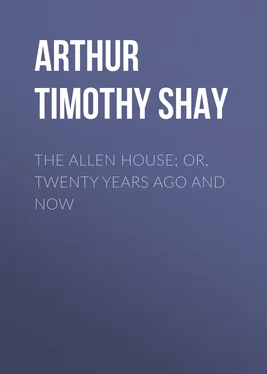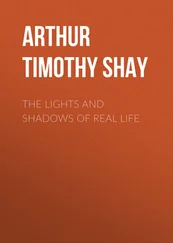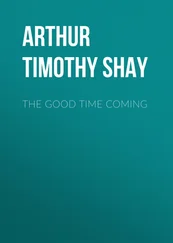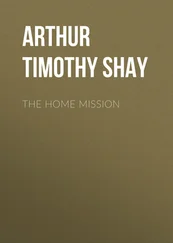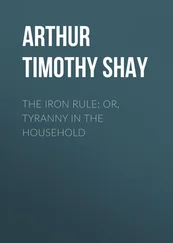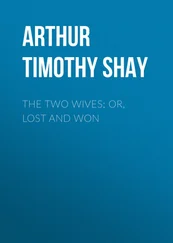Timothy Arthur - The Allen House; Or, Twenty Years Ago and Now
Здесь есть возможность читать онлайн «Timothy Arthur - The Allen House; Or, Twenty Years Ago and Now» — ознакомительный отрывок электронной книги совершенно бесплатно, а после прочтения отрывка купить полную версию. В некоторых случаях можно слушать аудио, скачать через торрент в формате fb2 и присутствует краткое содержание. Жанр: foreign_sf, literature_19, foreign_antique, foreign_prose, на английском языке. Описание произведения, (предисловие) а так же отзывы посетителей доступны на портале библиотеки ЛибКат.
- Название:The Allen House; Or, Twenty Years Ago and Now
- Автор:
- Жанр:
- Год:неизвестен
- ISBN:нет данных
- Рейтинг книги:3 / 5. Голосов: 1
-
Избранное:Добавить в избранное
- Отзывы:
-
Ваша оценка:
- 60
- 1
- 2
- 3
- 4
- 5
The Allen House; Or, Twenty Years Ago and Now: краткое содержание, описание и аннотация
Предлагаем к чтению аннотацию, описание, краткое содержание или предисловие (зависит от того, что написал сам автор книги «The Allen House; Or, Twenty Years Ago and Now»). Если вы не нашли необходимую информацию о книге — напишите в комментариях, мы постараемся отыскать её.
The Allen House; Or, Twenty Years Ago and Now — читать онлайн ознакомительный отрывок
Ниже представлен текст книги, разбитый по страницам. Система сохранения места последней прочитанной страницы, позволяет с удобством читать онлайн бесплатно книгу «The Allen House; Or, Twenty Years Ago and Now», без необходимости каждый раз заново искать на чём Вы остановились. Поставьте закладку, и сможете в любой момент перейти на страницу, на которой закончили чтение.
Интервал:
Закладка:
Squire Floyd was a plain, upright man, in moderately good circumstances. He owned a water power on the stream that ran near our town, and had built himself a cotton mill, which was yielding him a good annual income. But he was far from being rich, and had the good sense not to assume a style of living beyond his means.
Henry Wallingford was the son of an old friend of Squire Floyd’s. The elder Mr. Wallingford was not a man of the Squire’s caution and prudence. He was always making mistakes in matters of business, and never succeeded well in any thing. He died when his son was about eighteen years of age. Henry was at that time studying law with Judge Bigelow. As, in the settlement of his father’s estate, it was found to be wholly insolvent, Henry, unwilling to be dependent on his mother, who had a small income in her own right, gave notice to the Judge that he was about to leave his office. Now, the Judge was a man of penetration, and had already discovered in the quiet, reserved young man, just the qualities needed to give success in the practice of law. He looked calmly at his student for some moments after receiving this announcement, conning over his face, which by no means gave indications of a happy state of mind.
“You think you can find a better preceptor?” said the Judge, at last, in his calm way.
“No, sir! no!” answered Henry, quickly. “Not in all this town, nor out of it, either. It is not that, Judge Bigelow.”
“Then you don’t fancy the law?”
“On the contrary, there is no other calling in life that presents to my mind any thing attractive,” replied Henry, in a tone of despondency that did not escape the Judge.
“Well, if that is the case, why not keep on? You are getting along bravely.”
“I must support myself, sir—must do something besides sitting here and reading law books.”
“Ah, yes, I see.” The Judge spoke to himself, as if light had broken into his mind. “Well, Henry,” he added, looking at the young man, “what do you propose doing?”
“I have hands and health,” was the reply.
“Something more than hands and health are required in this world. What can you do?”
“I can work on a farm, if nothing better offers. Or, may be, I can get a place in some store.”
“There’s good stuff in the lad,” said Judge Bigelow to himself. Then speaking aloud—
“I’ll think this matter over for you, Henry. Let it rest for a day or two. The law is your proper calling, and you must not give it up, if you can be sustained in it.”
On that very day, Judge Bigelow saw Squire Floyd, and talked the matter over with him. They had but one sentiment in the matter, and that was favorable to Henry’s remaining where he was.
“Can he be of any service to you, in your office, Judge—such as copying deeds and papers, hunting up cases, and the like?” asked the Squire.
“Yes, he can be of service to me in that way; and is of service now.”
“You can afford to pay him something?” suggested Squire Floyd.
“It is usual,” replied the Judge, “to get this kind of service in return for instruction and office privileges.”
“I know; but this case is peculiar. The death of Henry’s father has left him without a support, and he is too independent to burden his mother. Unless he can earn something, therefore, he must abandon the law.”
“I understand that, Squire, and have already decided to compensate him,” said the Judge. “But what I can offer will not be enough.”
“How much can you offer?”
“Not over a hundred dollars for the first year.”
“Call it two hundred, Judge,” was the ready answer.
The two men looked for a moment into each other’s faces.
“His father and I were friends from boyhood,” said Squire Floyd. “He was a warm-hearted man; but always making mistakes. He would have ruined me two or three times over, if I had been weak enough to enter into his plans, or to yield to his importunities in the way of risks and securities. It often went hard for me to refuse him; but duty to those dependent on me was stronger than friendship. But I can spare a hundred dollars for his son, and will do it cheerfully. Only, I must not be known in the matter; for it would lay on Henry’s mind a weight of obligation, not pleasant for one of his sensitive disposition to bear.”
“I see, Squire,” answered Judge Bigelow to this; “but then it won’t place me in the right position. I shall receive credit for your benevolence.”
“Don’t trouble yourself on that score,” answered the Squire, laughing. “It may be that I shall want some law business done—though heaven forbid! In that case, I will call on you, and you can let Henry do the work. Thus the equilibrium of benefits will be restored. Let the salary be two hundred.”
And so this matter being settled, Henry Wallingford remained in the office of Judge Bigelow. The fact of being salaried by the Judge, stimulated him to new efforts, and made him forward to relieve his kind preceptor of all duties within the range of his ability. There came, during the next year, an unusually large amount of office practice—preparing deeds, making searches, and drawing up papers of various kinds. In doing this work, Henry was rapid and reliable. So, when Squire Floyd tendered his proportion of the young man’s salary to his neighbor, the Judge declined receiving it. The Squire urged; but the Judge said—
“No; Henry has earned his salary, and I must pay it, in simple justice. I did not think there was so much in him. Business has increased, and without so valuable an assistant, I could not get along.”
So the way had opened before Henry Wallingford, and he was on the road to a successful manhood. At the time of his introduction to the reader, he was in his twenty-third year. On attaining his majority, he had become so indispensable to Judge Bigelow, who had the largest practice in the county, that no course was left for him but to offer the young man a share in his business. It was accepted; and the name of Henry Wallingford was thenceforth displayed in gilt letters, in the office window of his preceptor.
From that time, his mind never rested with anything like care or anxiety on the future. His daily life consisted in an almost absorbed devotion to his professional duties, which grew steadily on his hands. His affection was in them, and so the balance of his mind was fully sustained. Ah, if we could all thus rest, without anxiety, on the right performance of our allotted work! If we would be content to wait patiently for that success which comes as the orderly result of well-doing in our business, trades, or professions, what a different adjustment would there be in our social condition and relations! There would not be all around us so many eager, care-worn faces—so many heads bowed with anxious thought—so many shoulders bent with burdens, destined, sooner or later, to prove too great for the strength which now sustains them. But how few, like Henry Wallingford, enter with anything like pleasure into their work! It is, in most cases, held as drudgery, and regarded only as the means to cherished ends in life wholly removed from the calling itself. Impatience comes as a natural result. The hand reaches forth to pluck the growing fruit ere it is half ripened. No wonder that its taste is bitter to so many thousands. No wonder that true success comes to so small a number—that to so many life proves but a miserable failure.
CHAPTER VII
The morning which broke after that night of storm was serene and beautiful. The air had a crystal clearness, and as you looked away up into the cloudless azure, it seemed as if the eye could penetrate to an immeasurable distance. The act of breathing was a luxury. You drew in draught after draught of the rich air, feeling, with every inhalation, that a new vitality was absorbed through the lungs, giving to the heart a nobler beat, and to the brain a fresh activity. With what a different feeling did I take up my round of duties for the day! Yesterday I went creeping forth like a reluctant school boy; to-day, with an uplifted countenance and a willing step.
Читать дальшеИнтервал:
Закладка:
Похожие книги на «The Allen House; Or, Twenty Years Ago and Now»
Представляем Вашему вниманию похожие книги на «The Allen House; Or, Twenty Years Ago and Now» списком для выбора. Мы отобрали схожую по названию и смыслу литературу в надежде предоставить читателям больше вариантов отыскать новые, интересные, ещё непрочитанные произведения.
Обсуждение, отзывы о книге «The Allen House; Or, Twenty Years Ago and Now» и просто собственные мнения читателей. Оставьте ваши комментарии, напишите, что Вы думаете о произведении, его смысле или главных героях. Укажите что конкретно понравилось, а что нет, и почему Вы так считаете.
